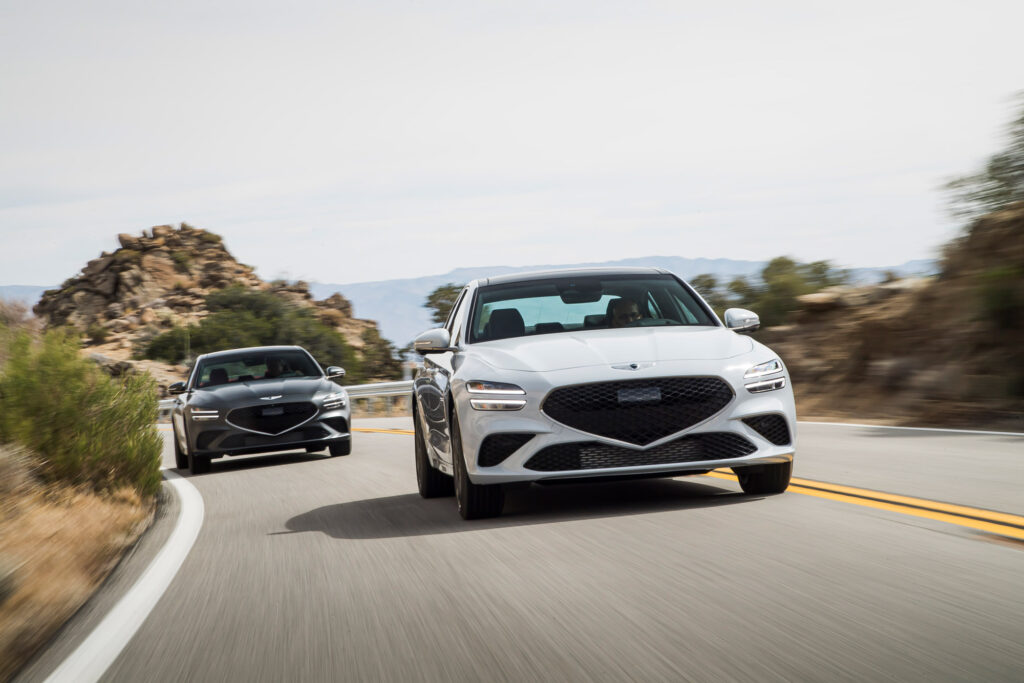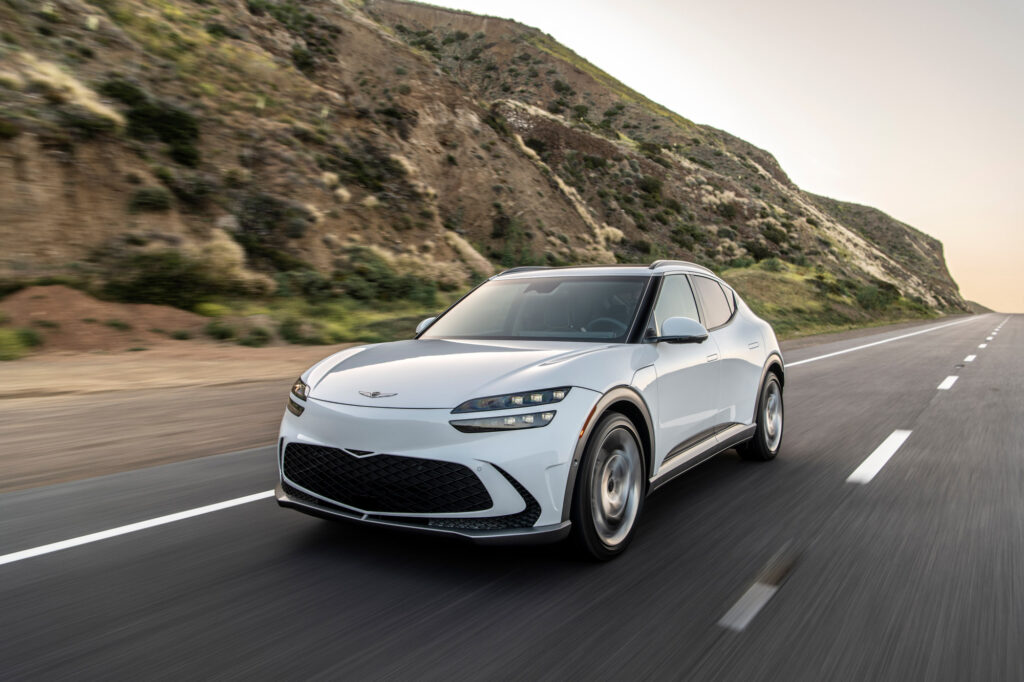In 2021, there were 39,508 recorded fatal motor vehicle crashes in the United States, resulting in 42,939 deaths. That number increased by a whopping 10.5% from 2020 due to the numerous vehicles traversing the roads and highways. Granted, distracted driving and higher vehicle performance mitigates the statistic a bit.
As such, prioritizing car safety is paramount if you’re looking to buy a new car. With the technology we have at our disposal, automakers have taken it upon themselves to try and lessen road accidents. But which manufacturer offers the safest models?
What Is the Safest Car Brand?
Genesis offers some of the safest vehicle models based on the test results and data provided by the Insurance Institute for Highway Safety (IIHS) and the National Highway Traffic Safety Administration (NHTSA).
From 2021 to 2023, the IIHS awarded 14 Genesis models with the TOP SAFETY PICK+ award, the highest recognition the organization gives out. Meanwhile, the NHTSA gave the Genesis GV80 a 5-star safety rating.
The models that received the TOP SAFETY PICK+ are the following:
Sedans

- 2023 Genesis G90
- 2023 Genesis Electrified G80
- 2022-23 Genesis G80
- 2022-23 Genesis G70
- 2022 Genesis G90
- 2022 Genesis G70
- 2021-22 Genesis G90
- 2021-22 Genesis G80
- 2021 Genesis G70
SUVs

- 2023 Genesis GV60
- 2022-23 Genesis GV80
- 2022-23 Genesis GV70
- 2022 Genesis GV70
- 2021-22 Genesis GV80
What Makes It the Safest Car Brand
The IIHS evaluated the vehicles based on crashworthiness, crash avoidance and mitigation, as well as seat belts and child restraints.
Crashworthiness is scored using a scale that grades the results using Poor (P), Marginal (M), Acceptable (A), and Good (G), with P being the lowest and G being the highest. Crash avoidance and mitigation follow a scale ranging from basic (lowest), advanced, and superior (highest).
The NHTSA, meanwhile, did tests and evaluated based on how the vehicle fares in frontal crashes, side crashes, and rollovers. It scored each criterion using a five-star system, with five stars being the highest, and averaging the total scores to get the overall safety level.
Crashworthiness
Crashworthiness measures how well the vehicle protects the occupants in a crash. IIHS performs a series of tests that include the following:
- Small overlap front test (driver and passenger side)
- Moderate overlap front test
- Side test
- Roof strength test
- Head restraints and seat test
All 14 of the models given the TOP SAFETY PICK+ award scored a perfect G in crashworthiness. In short, in the event of a crash, the passengers have a higher chance of surviving.
Crash Avoidance & Mitigation
Crash avoidance and mitigation take into account the car technology that prevents crashes or lessens their severity. For this rubric, the IIHS tested the effectiveness of the headlights, as well as the vehicle-to-vehicle and vehicle-to-pedestrian front crash prevention.
All the Genesis models listed above scored an Acceptable (A) grade and above for the headlights, and each one scored superior on both the front crash prevention tests. These ratings indicate Genesis manufactures vehicles that prevent crashes in the first place.
Seat Belts & Child Restraints
This factor tests the vehicle’s visual and audible alerts if the driver and passenger seats have their seat belts unbuckled. The ideal time frame is within 30 seconds between 6 mph and 25 mph and within two seconds above 25 mph.

The Genesis models awarded all scored a grade of A and above. This rating means the vehicle’s system does a fine job reminding the passengers to fasten their seatbelts at certain speeds.
However, some owners have voiced their frustrations about alerts even when the passenger seat is unoccupied. This, and the fact that there isn’t a visual alert in the backseat, are why the IIHS decided not to give the models a perfect score.
LATCH Ease of use
Lower Anchors and Tethers for Children (LATCH) is a system of attachment hardware for child restraints. It makes it easier to install child restraints and is intended to make correct installation easier.
The IIHS gave most Genesis models a score of A, with some getting Ms.
NHTSA Rating
The NHTSA conducted three crash tests to determine how well vehicles perform in different scenarios, specifically frontal crashes, side crashes, and rollovers.
For example, the 2021 Genesis GV80 scored four stars on the frontal crash test, five stars on the side crash test, and four stars on the rollover test.
Besides testing the vehicles, the organization also keeps track of recalls and complaints for each model. So far, the GV80 only has four recalls and 19 complaints (periodically updated). For comparison, the 2021 Honda Pilot also scored five stars but has six recalls and 113 complaints.
Most of the recalls and complaints for the GV80 are due to seat belt pretensioner issues. The pretensioner retracts some of the belt’s webbing upon collision to tighten it and secure the occupants.
According to the NHTSA reports, the recalls were because the pretensioners were prone to exploding during impact. The car dealers then secured the seat belt pretensioners with a cap, free of charge.
Other Brands to Consider
Other brands to consider if you’re prioritizing safety are Audi, Volvo, and Kia. In 2023 alone, they have 21, 14, and 10 models awarded with the TOP SAFETY PICK+ from the IIHS. This makes them some of the safest car brands available, on par with the Genesis.
Final Thoughts
The Genesis brand offers some of the safest models in the market today. The IIHS and NHTSA both recognized different models for their accident prevention technology, passenger safety, and how well the vehicles handle crashes.
However, because they’re luxurious and expensive, Genesis models aren’t the best pick for those on a budget. Some inexpensive alternatives that provide similar safety features are Kia, Honda, and Mazda, as some of its models got similar scores from the IIHS and the NHTSA.
Any information provided on this Website is for informational purposes only and is not intended to replace consultation with a professional mechanic. The accuracy and timeliness of the information may change from the time of publication.



















